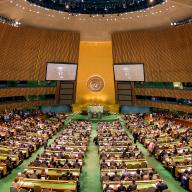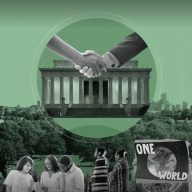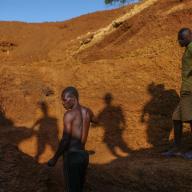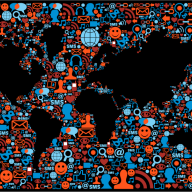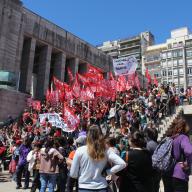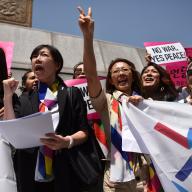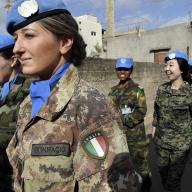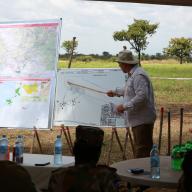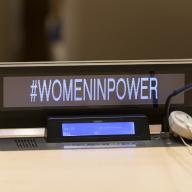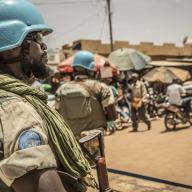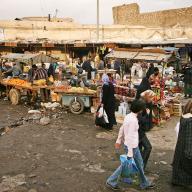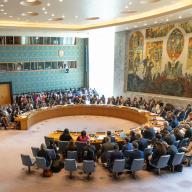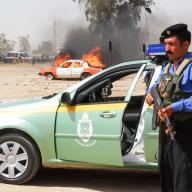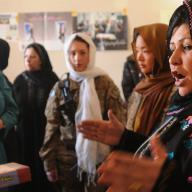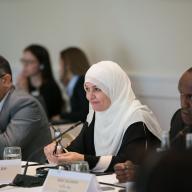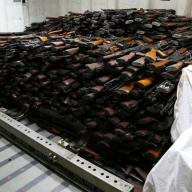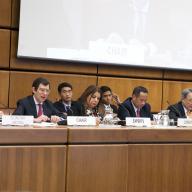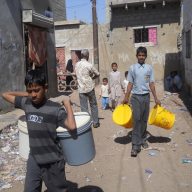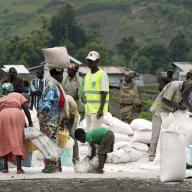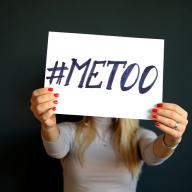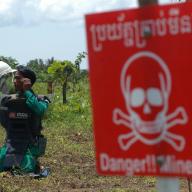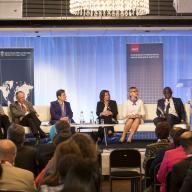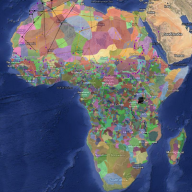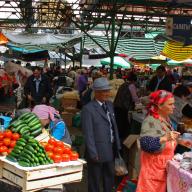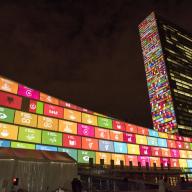Transnational organized crime poses an array of profound challenges to sustainable development, as well as global public goods such as peace and security. It deserves a prominent place in efforts to reinvigorate multilateral cooperation.
Related commentary: Governance and society
Organized environmental crime: Why it matters for peace operations
Organized environmental crime has become one of the fastest-growing types of organized crime. In many conflict-affected contexts, it is the primary source of financing for non-state armed groups. In the light of this, how can peace operations and other multilateral actors respond to conflicts which are driven or sustained by activities that involve illegal exploitation and trade in natural resources?
Social media: A tool for peace or conflict?
Human rights activists have used social media technology to organize peaceful protests and defend democracy for more than a decade. More recently, peacebuilders have discovered it can be a tool to understand conflict dynamics and counter extremism better. Yet the potential of social media as a megaphone for promoting human rights, democracy and peace is overshadowed by its dismal record of being used to drive radicalization and violence through disinformation campaigns.
Overcoming barriers to grassroots inclusion in peace processes
While grassroots participation in peace processes is increasingly recognized as a way of achieving more inclusive and sustainable peace, moving beyond the realm of traditional diplomacy among high-level actors remains a challenge. Community and grassroots organizations often remain at the periphery of peace processes. This can be due to contending priorities among civil society groups, geographical distance from the negotiation table, the language used during negotiations and implicit issues of hierarchy and privilege.
Coronavirus shocks to human development and sustaining peace
The pandemic caused by coronavirus disease 2019 (COVID-19) is a massive systemic shock entailing both a public health catastrophe and a profound economic crisis. This blog briefly examines the dual crisis especially as it affects countries of the Global South. The dual crisis lays bare cleavages and structural weaknesses both in individual countries and in the highly interconnected global system. It poses a critical challenge to governments and multilateral institutions to formulate and implement an effective and coherent response.
From grassroots to peace talks: Women in the inter-Korean peace process
Despite some hurdles, the last two years have seen hope return to the inter-Korean peace process. With the historic summit on 27 April 2018 following the Democratic People’s Republic of Korea’s (DPRK, North Korea) participation in the Winter Olympics in Pyeongchang, inter-Korean relations became significantly warmer and perhaps closer than ever.
Tensions on Iraqi soil likely to overshadow anti-government protest demands
Amid the rapidly increasing tensions between the US and Iran, there is a real danger that the demands of the Iraqi protest movement could be side-lined. The current protests, which sprung up in October 2019, risk having their demands ignored as the Iraqi government shifts it’s focus to dealing with the current crisis.
Connecting the dots on the triple nexus
The concept ‘triple nexus’ is used to capture the interlinkages between the humanitarian, development and peace sectors. Specifically, it refers to attempts in these fields to work together more coherently in order to more effectively meet peoples’ needs, mitigate vulnerabilities and move towards sustainable peace.
Police Reform in Northern Ireland: Achievements and Future Challenges
Policing played a central role in the long sectarian conflict in Northern Ireland. A key objective of the peace process was a fundamental transformation of the relationship of the police to society, with the aim of achieving ‘a police service capable of attracting and sustaining support from the community as a whole’.
The opportunity for local peacebuilding interventions: The case of Kirkuk
SIPRI’s latest Policy Paper ‘Building everyday peace in Kirkuk, Iraq: The potential of locally focused interventions’ provides an understanding of how, when and by whom acts of peace and conflict are carried out at the everyday level, and gives policy recommendations for interventions that would address the local side of peacebuilding. This essay highlights some core areas where there is an opportunity for peacebuilding interventions to affect real change in the everyday lives of Kirkukis.
The inclusion of gender-based violence concerns in arms transfers decisions: The case of the Arms Trade Treaty
Article 7(4) of the Arms Trade Treaty requires that states parties—when deciding whether to approve an arms export—shall take into account the risk that the items may be used to commit or facilitate serious acts of gender-based violence (GBV) or violence against women and children.
Governing the ‘ungoverned’: Suppressing the Islamic State’s insurgency in Iraq
As the Iraqi Counter Terrorism Service (CTS) launched an operation to target the Islamic State in the Hamrin mountain range in Iraq on the 11 April 2019, it is pertinent to examine the importance of the Iraqi state’s involvement in governance and sustainable security in such isolated spaces.
Beyond ‘women’s issues’ and smoky rooms: Debunking the myths about gender in peace mediation
This week and next, the UN member states meet in the General Assembly for its 73rd session. As in previous years, we expect to hear more statements highlighting the role of women in peacebuilding and the need for more inclusive and gender-sensitive peace processes. Nearly two decades after the landmark resolution, why is implementation still sorely lagging?
SDG16.4 and the collection of data on illicit arms flows: Progress made but challenges ahead
This backgrounder provides an overview of ongoing and potential work on measuring states’ achievement of goal 16.4. It begins by outlining the SDG process and how it has sought to overcome the challenges associated with measuring illicit arms flows. It then summarizes the data collection efforts to date and outlines some possible options for filling the gaps that exist.
Let’s talk about ‘women’s issues’
Today is International Men’s Day – a day that was first initiated by labour movements to protest against men’s working conditions. Later, in 1910, the event was recast as a day to support men’s universal right to vote and since then it has been used to celebrate men’s rights, protest wars, demonstrate against increased food prices, and more generally to promote men’s empowerment and equal rights around the world.
Towards a comprehensive approach to sustaining peace - a reality too complex to tweet?
Just like UNSC resolution 1325 and follow-up resolutions on Women, Peace and Security, feminist organisations – this time together with researchers – have driven awareness of the gender, climate change and security nexus. There is a long way to go, but there is strong interest from a wide range of stakeholders in supporting research on this nexus, to inform their work.
Why humanitarian assistance needs rigorous evaluation
According to the United Nations Office for the Coordination of Humanitarian Affairs (UNOCHA) and the Financial Tracking Service (FTS), the number of people in need of humanitarian aid in 2017 rose to 141.1 million and they were located in 37 countries. The Global Humanitarian Appeal stood at nearly $13 billion as of November 2017, which represented 58 per cent of the total fund target set for humanitarian assistance.
Measuring conflict exposure in micro-level surveys
For a peacebuilding and reconstruction policy to succeed, it must consider how people are affected by war and violence.
